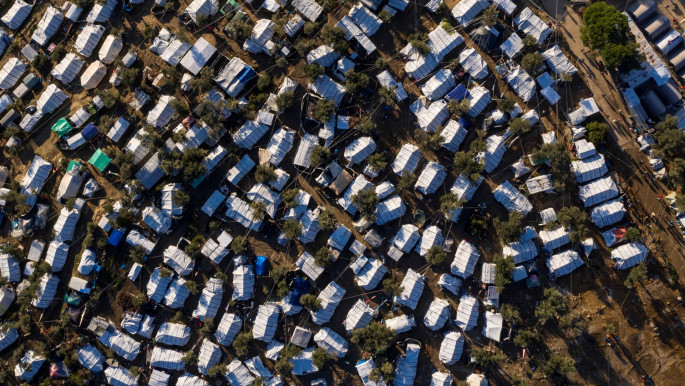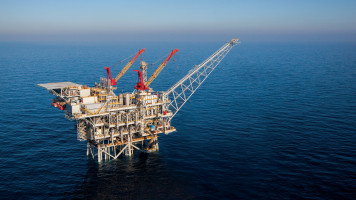Migration in post-Brexit Britain: How will refugees and asylum seekers be affected?
Laws and legal rights pertaining to the migration of refugees to the UK will continue unchanged for the most part, but grey areas still remain.
One issue that will be most impacted is the process of applying for asylum. As British law replaces the Dublin regulation's rules, refugees wishing to join family members already living in the UK will have a more arduous task in front of them.
The Dublin system allowed asylum seekers to apply for protection in the UK if they were reuniting with a spouse or child and also allowed unaccompanied minors to reunite with relatives.
Under British law, such reunions will only be allowed if the UK-based relative has refugee status or subsidiary protection status, which grants the right of residency for one year. Minors will only be allowed to reunite with parents, not extended family members.
The Dublin system also determines which country is responsible for asylum applications and allows claims to be rejected on the grounds that the individual should have claimed asylum in the first EU country which they entered.
The UK will no longer be part of this system, and in December ministers laid out plans to ban claims made at sea following an uptick in small boats trying to cross the English Channel.
 |
As British law replaces the Dublin regulation's rules, refugees wishing to join family members already living in the UK will have a more arduous task in front of them |  |
Marie-Charlotte Fabié, the director of the NGO Safe Passage International, says that Britain's retraction from the Dublin regulation may "put an end to the only legal and secure route to seek asylum in the UK from the European Union."
Furthermore, she acknowledges that for months after the Brexit transition period, "there won't be any real alternatives to the dangerous sea crossings, smugglers and [other] crime" to enter the UK, thus putting thousands at risk.
 |
|
| Read more: How Greece is silencing NGOs to hide abuses at refugee camps |
In early January, migrants crossed the English Channel for the first time since Brexit, endangering their lives and enduring freezing cold conditions. Determined to seek safety, the focus for many refugees was simply getting on dry land, not migration policy.
Even for those who do have Brexit on their minds, "it won't deter them seeking a better life", Robert McNeil, the Deputy Director from the Migration Observatory at the University of Oxford, says.
While refugee protection for those who cannot return home due to unsafe conditions will remain largely unchanged, Brexit could have serious and more direct implications for the conditions of refugees in Britain.
Caroline Nokes, a former Conservative immigration minister, in December slammed plans to house asylum seekers in unhealthy facilities after Brexit "in camps … with no mains electricity, nor mains water". While charities continue to provide assistance for refugees - it is not enough.
EU and government funding for asylum-related projects provides a vital lifeline for many asylum seekers and migrants entering the UK. Many will find themselves destitute at various points in the application process, struggling with integration and learning the language, and charities are on hand to help. However, the future of funding that asylum seekers and charities will receive could be uncertain following Brexit.
 |
Different governmental bodies feel differently about different areas of social policy - and the Home Office is known for being particularly brutal toward immigration |  |
Speaking to The New Arab, Frances Timberlake, the UK Advocacy Officer for Refugee Rights Europe, believes that the UK government should be willing to invest more in funding for asylum seekers and refugees.
Admittedly, that won't be a quick or easy feat, especially in light of the economic crisis caused by the Covid-19 pandemic. "Different governmental bodies feel differently about different areas of social policy - and the Home Office is known for being particularly brutal toward immigration," Timberlake says.
In this sense, Brexit may fail refugees. Natalie Bennett, the former leader of the Green Party, told The New Arab that Britain "is not welcoming anything like sufficient numbers, and those who make it here are treated abominably…The culture of disbelief across the asylum system is hugely damaging."
 |
|
| A house but not a home: Refugees in Britain long for community amid Covid-19 |
What's more is that in this regard, similar to policy - little may change. There is a "strong, UKIP-style anti-migrant constituency that will call for more curbs," Bennett says. Where public discourse and opinion weighs largely on laws and legislations that are passed, there is more evidence of "dreadful comments and briefings emerging from the government around refugees arriving across the channel."
And if the government takes matters into its own hands and does what they deem 'necessary' or 'right', it can be accused of being "out of step" with public opinion on immigration. Both Natalie and Frances agree that the media is a large driving factor in shaping views and opinions of migrants. Whilst Timberlake argues that we need to call the media to account, Bennett considers individual action hugely valuable.
Yet however beneficial civil society actions are, it is the government that has the power and resources to effect change, with more needing to be done now that Britain has repealed the Dublin regulation. But many doubt there is the political will. "Given its political interest in stoking culture wars, this is not a government likely to head in the direction of increased protection for migrants," Bennett said.
Milica Cosic is a freelance political journalist and holds an MSc in International Relations. She specialises in the refugee crisis in Europe, particularly Eastern Europe. Follow her on Twitter: @milicac7



